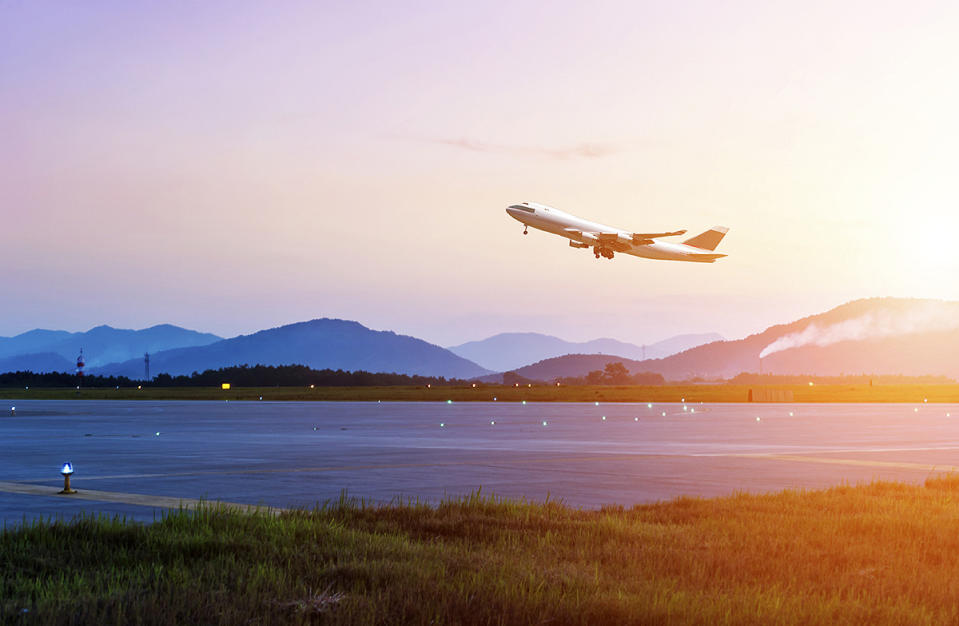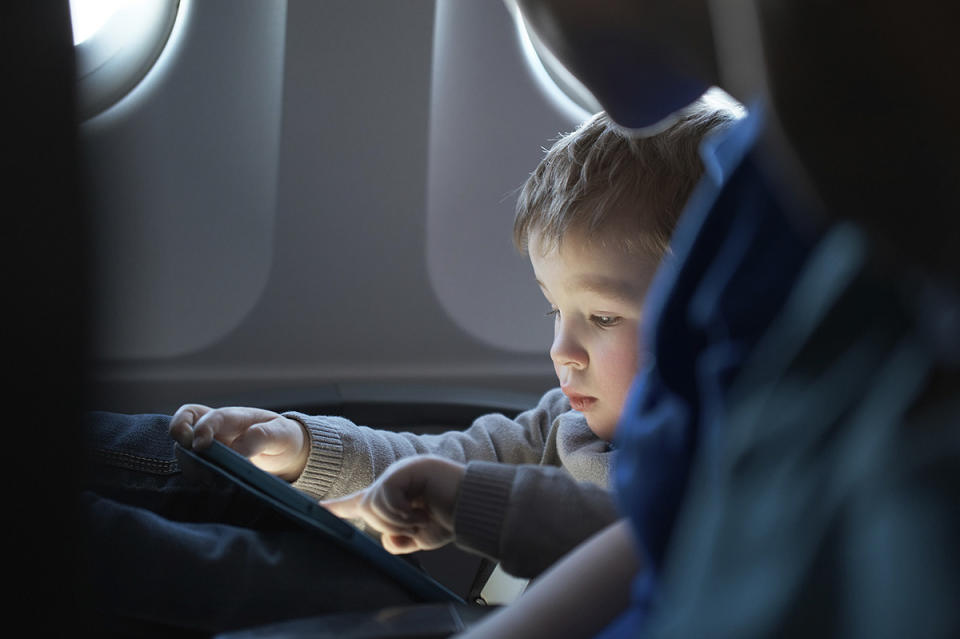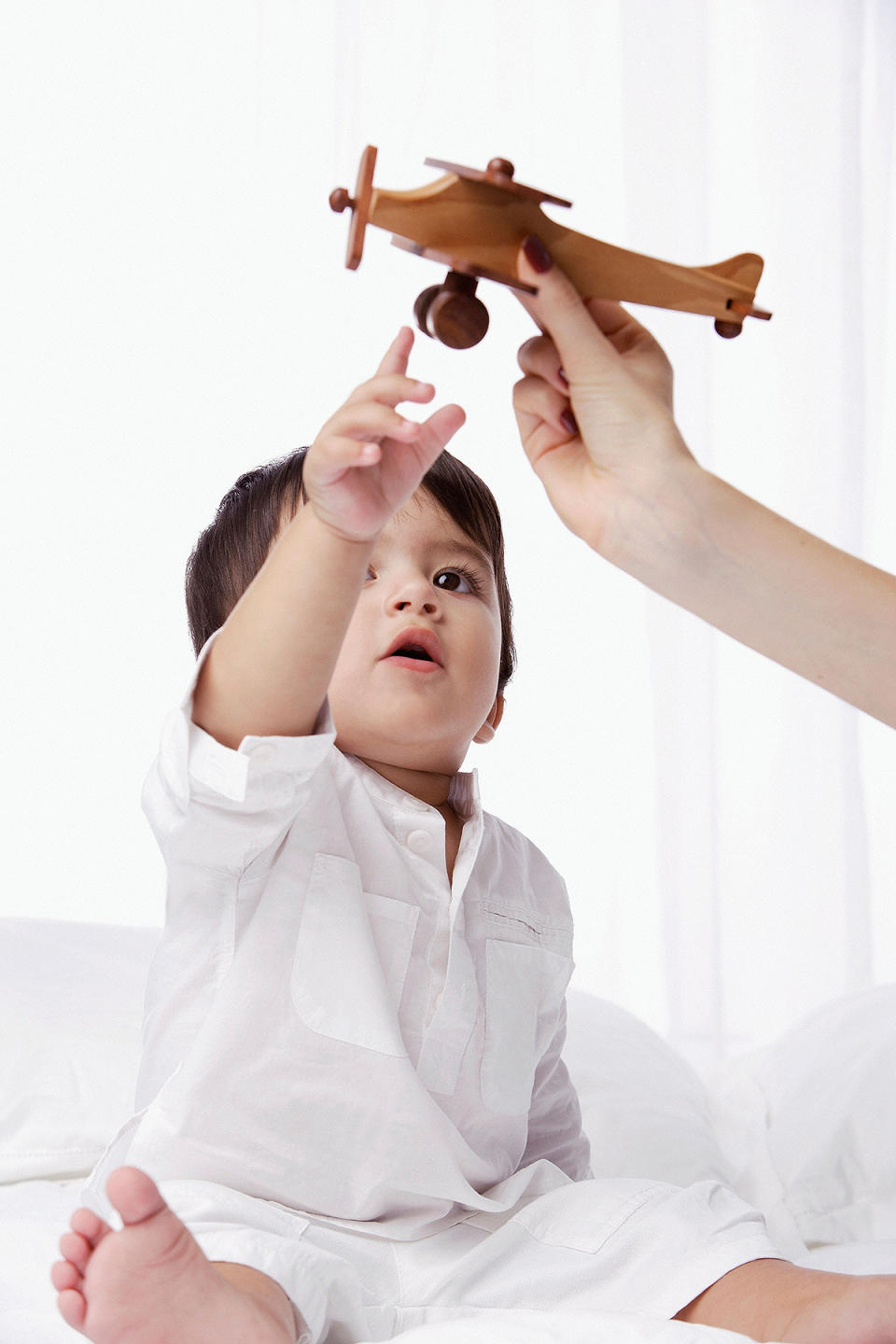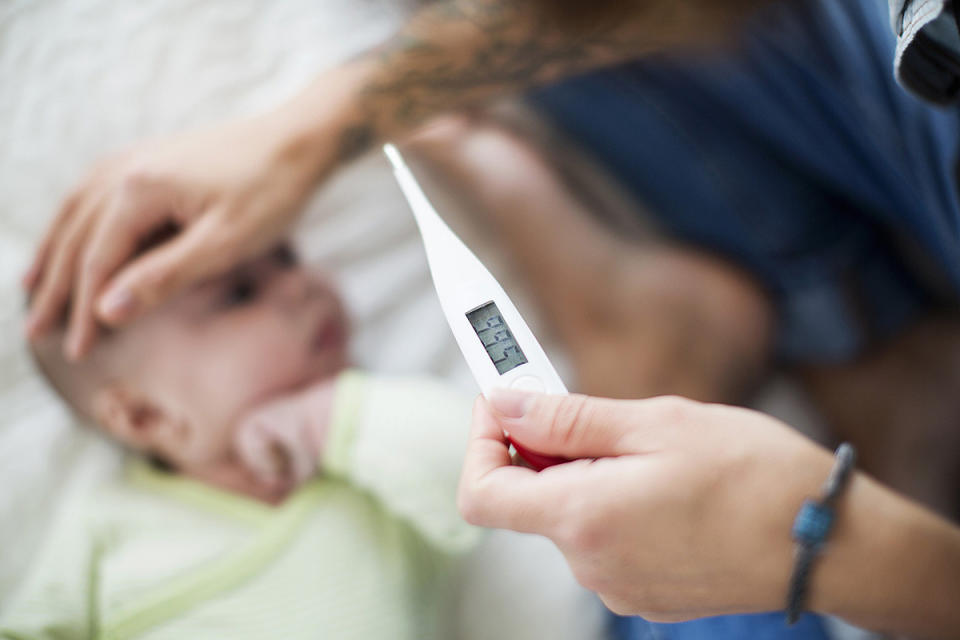How To Stop A Baby From Crying On A Plane (Info Anyone Can Use)

Uh oh. A long flight ahead and here come the waterworks. (Photo: Susanne Alfredsson/Snapwire)
We’ve all been there. After sitting in traffic to get to the airport, wading through a seemingly endless security line, shoving the carry-on into the overhead compartment, your flight finally takes off — and a baby starts wailing. It’s the worst, right?
And when that screeching, thrashing, tearful noisemaker belongs to you, it’s pretty tough to ignore the daggers being shot from the eyes of your fellow passengers, who would really prefer it if you could please just quiet that baby down, thanks.
Of course, babies cry: “That’s what they do!” many an unhelpful person has surely explained to you, if you happen to be a parent. But, at some point — because you have to for work, or it’s your brother’s wedding, or because hey, you just want to go somewhere and bring the human child you are raising — chances are you’re going to get on a plane with your baby. Can you really stop him or her from ever crying on every flight? Probably not. But there are some things you can do to help make air travel a bit more comfortable for you, your little one… and everyone else sharing in the joys of air travel.
Related: Bribes on a Plane: How to Make Nice With Fellow Passengers When Your Baby Goes Insane

Takeoffs and landings are the most tear-inducing part of the flight. (Photo: iStock)
For most babies, severe crying is triggered during takeoff and landing. “Babies’ ears are more susceptible to feeling pressure changes than adult ears,” explains L.A.-based pediatrician Tanya Altmann. “It’s because their canals are smaller. And landing is usually worse than take off with the change in air pressure.”
Dr. Altmann recommends giving baby “something to suck and swallow on, which can help relieve air pressure.” That could mean breastfeeding (often a whole other can of worms on an airplane, unfortunately) or bottle feeding, or giving a pacifier or a blanket to suck on. “You don’t have to wake baby up during takeoff or landing,” she says, “but have something ready for him to suck if he wakes up crying.”
There are other discomforts, too. “Your baby might be out of sorts to find herself in a strange environment,” says Mackenzie Dawson, Motherland columnist at the New York Post. “But you can minimize this by making sure she’s warm and well-fed.” Dawson always has an extra layer of clothes on hand for baby as well. “Planes can get cold, so bring some light blankets and plenty of extra diapers.”
That’s not all. You’ll need a carry-on bag stocked with baby-soothing tools. Polly Gannon, an LA-based baby nurse and lactation educator for over 20 years suggests packing, along with the essentials, “some tylenol, a few teething toys, and a few toys that the baby likes.” Her top tip? “Children like to play with things they don’t always play with at home so bring some new toys to keep baby’s interest.”
Related: The Most Annoying Things Parents Do On Planes

Getting your kid their own seat might just be the ticket to keeping them happy. (Photo: iStock)
And while there’s no “perfect time” to travel with an infant, choosing an off-peak time to travel is usually ideal, notes National Parenting Expert Cherie Corso (cheriecorso.com). If holiday travel is a must, “be prepared and be ready with supplies. Have extra food, bottles, toys, a favorite blanket or even a headset with soft music and an iPad.” Corso also advises that while most airlines allow children under the age of 2 to ride free on your lap, if possible, “buy a seat for your child. It’s worth the extra money for comfort, convenience and respect for your child and the other passengers.”
(Note: when purchasing a seat for a child under two, a government-approved car seat is required. Baby will need to be in a window seat away from the exit row. Some airlines impose additional restrictions, so it’s a good idea to check with yours in advance.)
“Parents often ask me ‘should we take a night flight so that baby will sleep?’ and my response is that it sort of depends on the family,” Dr. Altmann says. “Some people like it but then if the parents aren’t sleeping well it’s hard for everyone the next day. So I usually prefer to fly during the day. Hopefully the child naps, and if not then you can have some quality play-time with baby and when you get to your destination he is exhausted and can sleep well.”
Another reason babies cry on planes? “The surroundings are very unfamiliar to them,” says Dr. Altmann. “There are lots of people and a lot of commotion, so as your baby gets older she’ll start to notice that.”
Related: No More Crying Babies: Are Child-Free Flights the Next Thing?

A toy airplane can be a great way to get your tot comfortable with the idea of flying. (Photo: Asia Images Group Pte Ltd / Alamy Stock Photo)
Corso suggests preparing your baby for air travel weeks in advance: “Before going to the airport and flying on an airplane, read books about it, and even buy a toy airplane.”
Dawson agrees. “I actually think babies understand way more than we think they do, long before they can put together complete sentences. And they definitely understand tone,” she says. “On your way to the airport, tell your baby what’s going to happen, where you’re going, and what the plane will be like.”
Other things can trigger fussiness, as well. “Baby’s nap schedule may be a little off because you’re traveling to the airport, and she’s taking naps on the go instead of in her crib like she’s used to,” says Dr. Altmann.
Being well-prepared will minimize the effect any travel-induced chaos (delays or even cancelled flights are a real thing!) may have on your baby. “Do a bit of online research about the airports you’ll be flying out of and into during connections,” Dawson suggests. “Do they have mother’s lounges where you can nurse? What about playrooms? That kind of knowledge will really come in handy if you end up spending more time than anticipated in an airport,” she adds.

Keeping your kid comfortable during a flight will be extra challenging if they’re sick. (Photo: Lisa Wikstrand/Maskot/Corbis)
If baby is sick, that will make traveling extra tough. Check with your doctor about what medications she can have and make sure to stock up. If baby is teething or in pain, “you can also give an appropriate dose of tylenol about 30 minutes before take-off and again, depending on how long the flight is, again 30 minutes before landing,” says Dr. Altmann.
But she suggests avoiding giving baby Benadryl to help him sleep. “I usually prefer not to give a baby or toddler a medication like that for a couple reasons. If does work and he sleeps the whole 5 hour flight during the day, then he’s going to be up the whole night when you arrive at your destination,” she says. “Also, there can be unpleasant side effects that could make your child hyper instead of sleepy and then that can backfire if you have an agitated, hyper baby on the airplane.” Obviously, not any traveling parent’s goal!
Dr. Altman’s advice for parents who want to take the stress out of air travel. “Look at the time on the plane as three hours you have to bond with and spend time with your baby. If you’re trying to read a book or get work done, you’re going to end up frustrated.”
Corso agrees. “Don’t stress or worry about other passengers,” she advises. “No one wants to be the parent of an infant who won’t stop screaming on a plane, but babies, crying or otherwise, are a fact of life. It may not be the most pleasant air travel experience, but most passengers will sympathize with you.” And, in an ideal air travel experience, “some may even offer help.”
WATCH: Worst Airports in the World Ranked — Who Won?
Let Yahoo Travel inspire you every day. Hang out with us on Facebook, Twitter, Instagram, and Pinterest. Watch Yahoo Travel’s original series “A Broad Abroad.”

